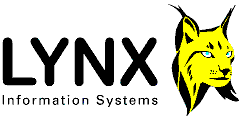Lynx are the GIS specialists for the Petroleum Industry and are keen to help other members of the community maximise their GIS skill-set. As an ESRI business partner and users of ESRI technology for over 15 years we have the experience and the expertise to instruct and enable others to benefit from our knowledge.
Different course levels are available, so whether you’re a beginner, a moderate user or a power user we have a programme which will benefit you perfectly. We also have a specific course aimed at non-GIS using Management, enabling you to lead your teams with full knowledge.
The 2011 course syllabuses now include:
Beginner
The beginner course is targeted at individuals who have either never used a GIS before as well as
those who have been out of the loop for a while. The course involves:
• Basic concept and functions of a GIS System
• Visualisation
• Creating maps
• Querying data
• Analysing simple datasets
• The importance of Metadata
After completing the course the attendee should be able to:
• Understand what a GIS is.
• Use basic functionality
• Create maps for printout and inclusion in presentations
• Query both spatial and tabular data
• Understand different types of geometric data
• Appreciate different projections and coordinate systems.
• Georeference raster data
• Digitise information for inclusion in a GIS
Intermediate
The Casual User course is aimed at petroleum professionals who use GIS in their general day-to-day
workflows. The course ensures the attendees understand:
• How to organise and use spatial data in a Geodatabase.
• Geodetics
• How to edit spatial data
• Using symbology and labelling to graphically represent data
• Incorporate ASCII data into ArcMap, eg. navigation data
• Query GIS data to provide useful statistics to make business decisions.
• Defining relationship classes to explore linked data
• Creating grids from contour input using spatial analysis
• Editing complex geometry, eg. concession blocks
Once complete the attendee will have confidence and ability to work with spatial data efficiently and
accurately.
Power User
The Power User course is aimed at professionals who use GIS daily and are comfortable with
manipulation of geometry. The course will provide the attendee with the following specific skills:
• Ability to integrate diverse data sources and create rich knowledge based maps
• Solve spatial data management alignment issues
• Build geoprocessing models to quickly save time on complex tasks
• Use complex definition queries
• Creating common risk segment and play maps based
• ArcMap and SMT Kingdom interfacing
• Mapping migration pathways
• Volumetric and prospect evaluation
• Using Lynx tools to integrate SEG-Y
Tailor-made solutions
Lynx also provide bespoke on-site training courses to better suit the ability and necessary skills of the attendees. The courses are primarily designed to complete a specific company objective, though they can be based on a selection of goals from the Beginner, Intermediate or Power User courses.
Lynx Lunch and Learns (L&L)
An ever increasingly popular option for the tailor-made solutions; Lynx specialist training personnel arrive on-site over the lunch period and provide a two hour training session to a rolling employee attendance. During the L&L the Lynx staff demonstrate how the full potential of GIS can be released and integrated into a G&G workflow. The L&L starts off basic, aimed at managerial level, who need to be aware of the ability of GIS but not actually have to use it, right up to a power GIS Analyst level with an amalgamation of processes to quickly harness the power of GIS and show off some of the advanced features.
Server based training
The server based training encompasses SDE database related tasks, as well as ArcGIS Server services and web mapping applications. Lynx staff can arrive on-site and asses the current situation and provide consultancy to bridge the gap between IT and GIS departments and assist in providing advice to reach the best solution to manage the spatial data associated with the petroleum industry.
Lynx can assist companies in building Spatial RDBMS (Relational Database Management System) which can be accessed through internal Intranet systems and also provide web-based mapping application design and development assistance to serve data over the Internet.
Contact Ben Sayers (ben.sayers@lynxinfo.co.uk) for more information.
